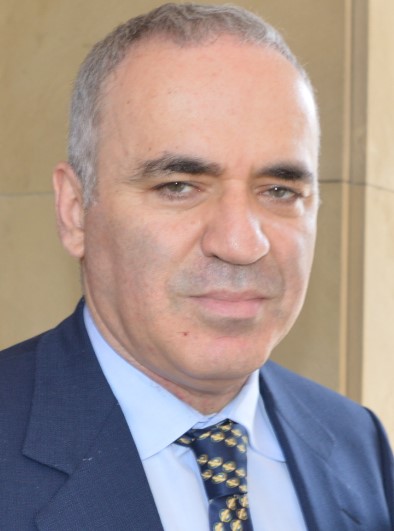In an alarming development reflecting the increasingly oppressive climate in Russia, former world chess champion Garry Kasparov faces potential terrorism charges. Russian state media outlet TASS reported on Sunday that law enforcement officials are considering prosecuting Kasparov, signalling a severe escalation in the Kremlin’s efforts to silence its critics.
Garry Kasparov Arrest in Absentia and Foreign Agent Laws
Garry Kasparov, who reigned supreme in the chess world during the 1990s and early 2000s, has long been a vocal critic of the Russian government. His outspokenness has not gone unnoticed. In April, Russian authorities “arrested him in absentia” for his involvement in organizing the Free Russian Forum, a conference that supports political opposition and is hosted in Lithuania. This move highlights Russia’s intensifying crackdown on dissent, particularly targeting influential figures who dare to challenge the Kremlin’s narrative.
Kasparov’s troubles with the Russian government began earlier. In 2022, he was designated a foreign agent due to his work with the Anti-War Committee, an organization he co-founded following Russia’s invasion of Ukraine. This designation brings significant burdens: mandatory registration with the justice ministry, frequent reporting of activities, and the requirement to label all public communications with a foreign agent disclaimer. These measures are designed to stigmatize and impede the operations of those labelled as foreign agents, effectively curbing their influence and reach.
The Anti-War Committee and Criticism of Putin
The charges Kasparov faces are linked to his role in co-founding the Anti-War Committee in 2022, following Russia’s invasion of Ukraine. The committee has been outspoken in its condemnation of President Vladimir Putin, labelling him a “mad dictator” and vehemently opposing the invasion. These activities have provoked the Russian government, which perceives any form of opposition as a direct threat to its stability and authority.
Broader Crackdown on Dissent
The potential terrorism charges against Kasparov are part of a broader strategy by the Russian government to suppress internal dissent amid the ongoing conflict in Ukraine. According to a report, the war has claimed the lives of at least 50,000 Russian soldiers, a staggering toll that emphasizes the conflict’s severity. The Kremlin’s harsh measures against critics, including prominent exiles like Kasparov, reflect its determination to maintain control over the domestic narrative and quell any opposition to its policies.
Kasparov’s case is not an isolated incident but part of a wider pattern of repression. Since the war began, the Russian government has intensified its crackdown on opposition figures, independent journalists, and activists. Numerous critics who have spoken out against the war and the government’s authoritarian practices have been imprisoned or forced into exile. This wave of repression aims to stifle dissent and eliminate any challenges to the Kremlin’s authority. The increasing severity of these actions highlights the lengths to which the Russian government will go to silence its critics and maintain a firm grip on power, regardless of the human and political costs.
Free Russian Forum and Advocacy for Democracy
The Free Russian Forum, co-organized by Kasparov, provides a crucial platform for Russian dissidents to discuss and promote democratic values and political change strategies. Viewed as subversive by the Kremlin, the forum has become a target for authorities. Kasparov’s involvement underscores his unwavering commitment to advocating for a democratic and free Russia, even at significant personal risk, highlighting his dedication to opposing authoritarianism and promoting reform.
International Reaction and Kasparov’s Defiance
In response to the potential charges, Kasparov, who has lived in exile since 2013, remains defiant. He continues to leverage his international platform to criticize the Russian government and rally support for democratic reforms. Kasparov’s situation highlights the severe risks faced by Russian dissidents, both within the country and abroad.
The international community has largely condemned Russia’s oppressive measures, calling for the protection of human rights and political freedoms. Despite this, the Kremlin appears undeterred by external criticism, remaining focused on consolidating its domestic power and silencing opposition.
In conclusion, the looming prosecution of Garry Kasparov on terrorism charges signifies a profound and concerning escalation in Russia’s efforts to suppress dissent. By singling out one of its most prominent critics, the Kremlin sends a chilling message to all opposition voices: no one is beyond its reach. As the devastating toll of the war in Ukraine persists, the Russian government’s repressive actions against figures like Kasparov demonstrate its unwavering commitment to maintaining control. It’s imperative for the international community to closely monitor these developments and continue advocating for the protection of political freedoms in Russia to ensure accountability and safeguard human rights.


